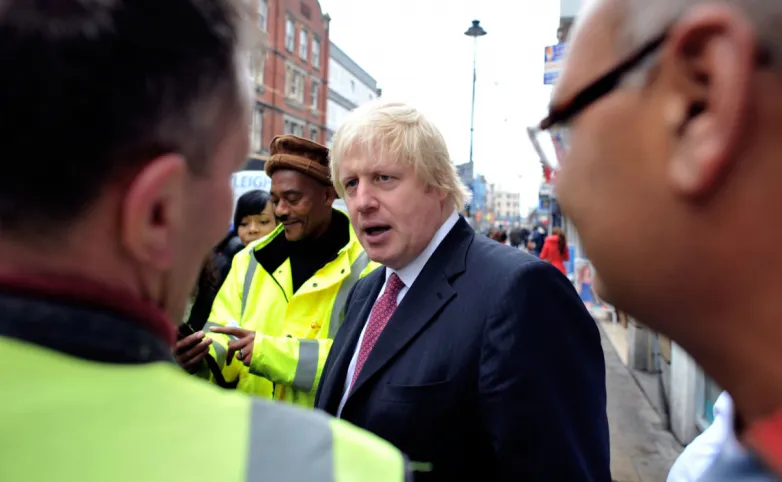Brexit paralysis and lack of incentives leave community energy facing uphill struggle in the UK
Sep 16, 2019 09:44 PM ET
- The future benefits of technology such as smart meters and the associated aggregation of small scale generation are not being adequately rewarded, support for solar and wind is being cut off and parliament is fixated solely on one issue

The Local energy in the UK: Finance, regulation and developing smart and flexible networks conference organized by the Westminster Energy, Environment and Transport Forum (WEETF) recently spelled out the bleak short-term prospects of community-owned energy projects.
Community energy struggles
Emma Bridge, CEO of lobby group Community Energy England, said the energy policies introduced by the U.K. government last year have had a severe impact on community-owned energy assets. The volume of energy generated by such schemes fell 84% in 2018 as a result, said Bridge. In the same period, added the chief executive, England experienced a 79% decrease in annual investment in community energy and saw 81% fewer new community energy groups formed as the frequency of stalled projects rose 13%.
“To allow community energy to grow and provide a resilient energy transition it must have policy support, at least in the short term,” said Bridge, who added the sector not only provides solutions to energy issues but also tackles social problems such as energy poverty. Developing community energy projects means “putting people at the heart of the energy system”, stated one of Bridge’s presentation slides.
Policy hurdles
Community energy projects can take forms including rooftop PV on schools or other community buildings, locally-owned solar and wind farms and bulk orders of PV and battery systems using local purchase schemes.
With the government having ended the Renewable Obligation Certificate requirement on power companies, the fixed payment feed-in tariff regime which offered 20-year remuneration was also shuttered on April 1, to be replaced by the Smart Export Guarantee.
Can technology provide solutions?
With policy support retreating, attendees at the WEETF conference in London considered whether salvation could come from technology, chiefly in the form of smart meters.
Toby Ferenczi, director of strategy for clean energy utility Ovo Energy, said the government needs to properly recognize the value of new technology in rolling out home and community-owned solar systems at sufficient scale to make such arrays commercially viable.
Ovo has one of the highest incidences of smart meter usage among U.K. power firms as half of its customers own such devices.
“We have 300 software engineers working for us so we are more of a technology company than an energy firm,” said Ferenczi, who worked for Hanergy’s U.K. solar business before joining the utility. However, he argued, despite a huge effort the numbers for solar and battery home systems are not yet sufficient to make installation a commercially viable solution.
U.K. regulation does not accurately value the future benefit of new technologies and until that happens across the whole value chain and energy network, said Ferenczi, it is difficult to design business models to support the commercial roll out of home and community energy projects.
Other struggles facing community energy groups concerned the role of distribution network operators (DNOs), said the Ovo director. “We collect so much data from the end users, e.g. patterns of energy behavior, [but] there are also data on the generation side of the energy system [and] there is no data regarding the DNOs’ substations,” said Ferenczi. “So the country’s energy regulator, Ofgem, has a key role to encourage or force the DNOs to apply new pricing signals for innovative projects [which deploy smart technology].”
That would ensure, said Ferenczi, innovative technology businesses such as power aggregators could offer communities solutions that make projects commercially viable.
Broader vision in uncertain times
Patrick Allcorn, head of local energy at the government’s Department for Business, Energy and Industrial Strategy (BEIS) held out little prospect of any improvements in the immediate future.
In a clear reference to the Brexit contortions paralyzing the U.K. parliament, Allcorn said “politics is not what it used to be and the ministers are not focusing on the really small scale decisions that concern many of the barriers that community energy faces”.
“It takes a lot of months of primary and secondary legislation to pass a bill,” said Allcorn, who expressed the view the sector “is highly unlikely to have fundamental [policy] changes in the short term”.
The BEIS representative spelled out what needs to be done in the U.K. once the seemingly endless Brexit wrangle reaches some sort of conclusion.
He said the nation needs “to build a narrative that investors and bankers understand and trust so they invest in it. Otherwise, nobody will invest if there is just one project here and there. The idea of individual projects is dead. Today there are millions [of pounds] of public funding for pilot projects but what we really need is pipelines and portfolios of projects.”
Until then, according to a statement released by industry body the Solar Trade Association in June: “Small scale commercial and community energy generators have been left with inadequate routes to market.”
Also read

